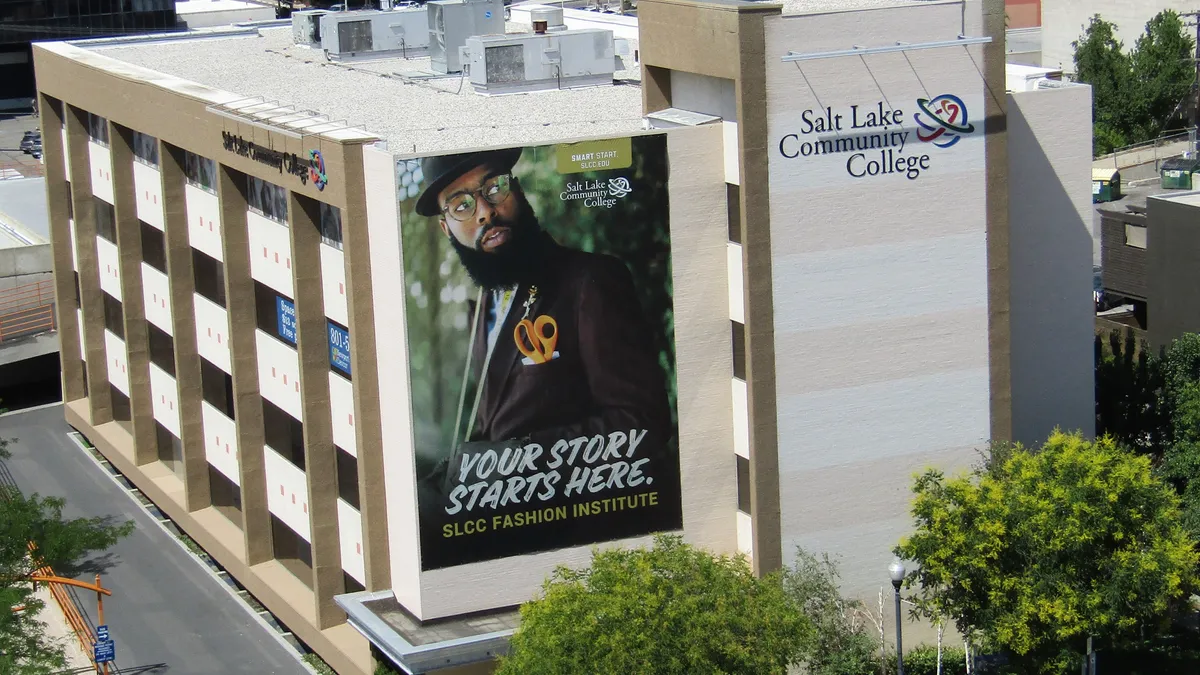Dive Brief:
- Salt Lake Community College received fraudulent applications for the spring 2022 semester, which leaders say were likely attempts to steal federal Pell Grant and COVID-19 relief funding.
- No money was released because of the fake applications, said Peta Owens-Liston, a spokesperson for the community college. Enrollment staff also checked applications for the fall term and found no similar cases, Owens-Liston said.
- The community college alerted the U.S. Department of Education, which started investigating who is behind the attempted scam, Owens-Liston said.
Dive Insight:
This is at least the second case in less than a year in which community college officials identified fraudulent applications.
As the fall semester opened, details emerged about the California Community Colleges system receiving more than 65,000 financial applications suspected of being from fraudulent bots. Officials there also considered the applications likely an attempt to tap into financial aid and coronavirus relief funding.
The issue has continued to stoke concern in the California system, where the chancellor's office in August asked all 116 institutions to report on enrollment fraud from bots. Almost 40% of campuses did not submit information, the Los Angeles Times reported last month. One faculty member told the newspaper she has continued finding hundreds of suspected bots enrolled as students in the Los Angeles Community College District.
The California system currently says it enrolls 1.8 million students, making it far larger than the 20,484 Salt Lake Community college reported in fall 2020.
Salt Lake Community College is not specifying how many fake applications it received. Owens-Liston only said the number is lower than the one reported for California but is "not single digits." Owens-Liston declined to share additional details, citing the investigation into the scammers.
The fake applications became public last week when the community college's president, Deneece Huftalin, discussed changes to the institution's application fees at a Utah Board of Higher Education committee meeting. During the pandemic, the community college waived its application fee, which drew widespread support, particularly from high school counselors, she said. But the news wasn't all good.
"It created some unintended consequences for us in terms of fraudulent applications," Huftalin said. "We are now trying to manage how are we going to still have an application fee that isn't a barrier, but creates some barriers from bots."
The fraudulent applications targeting Salt Lake Community College are the first such case officials at the American Association of Community Colleges heard about since the one in California, said Martha Parham, a spokesperson.
"It's one of the things we had on our radar," Parham said. "It is disappointing that people find a way to do this, especially at a college where students need those resources."
The Office of Inspector General in the Ed Department is aware of the situation at Salt Lake Community College, a spokesperson said in an email. But the office has a policy of not confirming or denying investigations, the spokesperson said.
Fake applications aren't the only recent attempts to take advantage of community colleges and other higher ed institutions. Concerns are running high about cybersecurity threats targeting colleges and universities.
Several community colleges across the country have at times had to shut down due to cyberattacks, and institutions have scrambled to bolster security after the pandemic drove more and more operations online.














